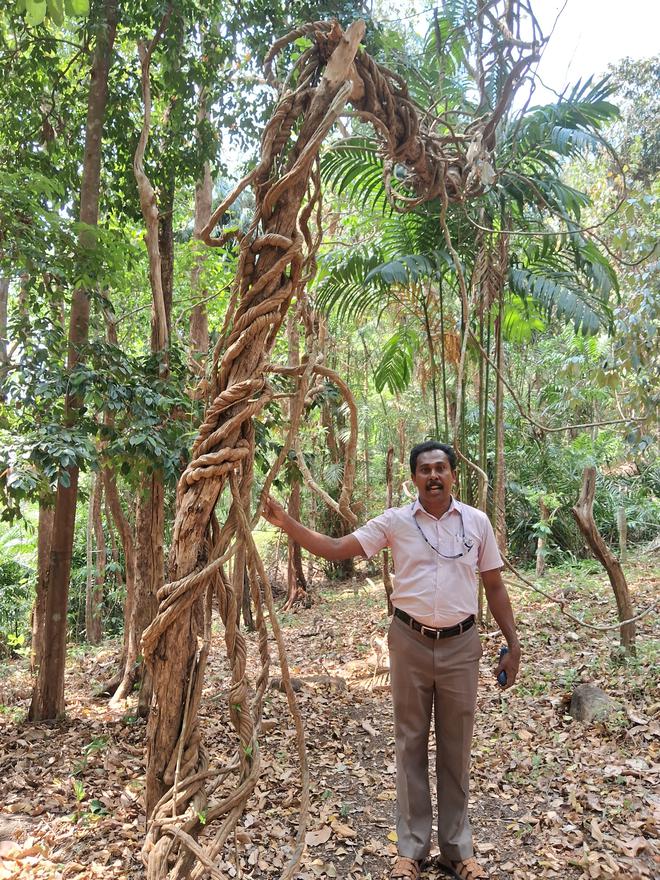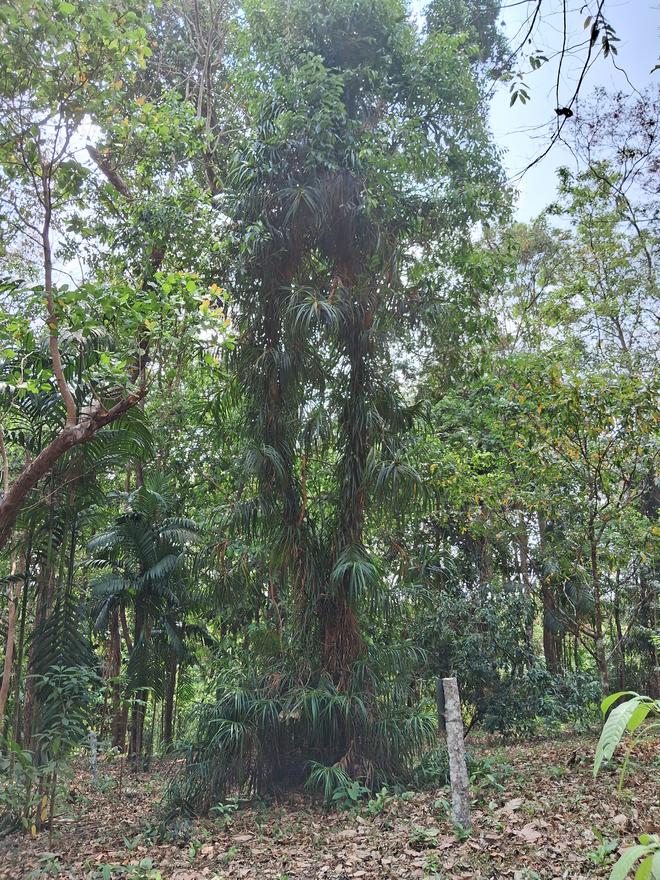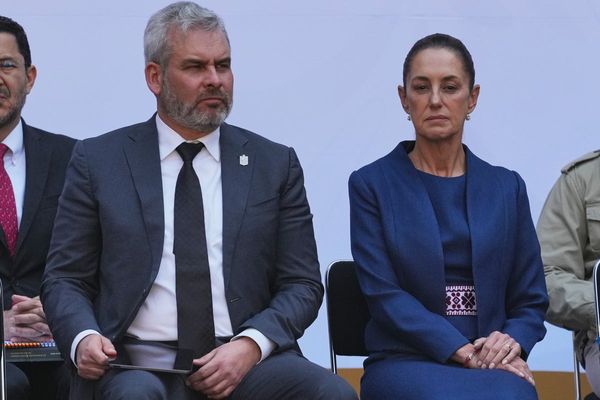Stately-looking trees tower over the dense undergrowth of bushes and shrubs. Thick-stemmed lianas hang, snake-like, from low branches. For all that, to the casual observer, it could be just another wooded area.
Botanists would be quick to dispel the notion. The plant species in this sylvan location at Palode are, for the most part, extremely rare non-natives.
Nestled in the extensive grounds of the Jawaharlal Nehru Tropical Botanic Garden and Research Institute (JNTBGRI), this 30-acre sprawl has been a second home to Andaman and Nicobar flora since 1994. The sea, perhaps, is the only thing missing here from their original home. The ‘Field Conservatory of Andaman and Nicobar Plants,’ located in the foothills of the Western Ghats, is at the heart of a new JNTBGRI project to develop a biorepository on plant diversity specific to the Andaman Islands.
The JNTBGRI, which won the coveted Global Genome Initiative for Gardens (GGI-Gardens) award for 2024 this month, will use the money to conserve 41 Andaman species (across 40 genera and 27 families) at the proposed biorepository.
Over half of the genera are novel to the Global Genome Biodiversity Network. The primary goal, according to the institute, is to “collect, store, and preserve samples from significant plant families and genera for research and conservation.” The 41 species include several that are threatened, endemic or valued for their medicinal properties. The facility will be established with the help of GGI-Gardens, the Botanic Gardens Conservation International (BGCI) and the United States Botanic Garden (USBG), Anurag Dhyani, a scientist with the institute’s Plant Genetic Resource (PGR) Division, said.

“We will be conserving the plant materials. Leaf samples, for instance, will be preserved at a temperature of (-)80 degrees Celsius. Herbarium specimens will be deposited at the JNTBGRI herbarium,” Dr. Dhyani, who is Project Investigator along with K. K. Sabu, said.
Established in 1994, this ‘Field Conservatory’ has helped conserve scores of species some 1,700 km from their island home, S. Pradeep Kumar, Director (in-charge), JNTBGRI, told The Hindu. On the 30 acres, the JNTBGRI lovingly maintains 170 species under 120 genera belonging to 60 families. Many of them, like the Bentinckia nicobarica and the Pinanga andamanensis, are rare, endangered or endemic to the Union Territory.
“Bentinckia nicobarica is one of only two species of the genus Bentinckia. It is endemic to the Nicobar islands. The other species, Bentinckia condapanna, is native to the Western Ghats,” said M. Abdul Jabbar, Technical Officer with the PGR Division and an old hand at the conservatory.
The field conservatory boasts fruit plants, climbing palms, timber-yielding trees, economically important canes like the Calamus andamanicus, and medicinal and aromatic plants. Here, one will encounter insect-repellant species, wild orchids and six wild variants of the betel vine.

The Andaman and Nicobar Islands, with their limited land area, are vulnerable to anthropogenic threats, habitat loss and natural calamities like cyclones. The value of the JNTBGRI conservation programme in southern Kerala was fully appreciated when the 2004 tsunami wreaked havoc on the floral wealth of the islands. “After the catastrophe, the JNTBGRI was able to reintroduce many endemic species to the islands from the collection here,” Dr. Pradeep Kumar said.
For centuries, indigenous peoples of the Union Territory like the Sentinelese, Nicobarese and Jarawas have depended on the local flora for their needs including food, medicine and shelter. From an ethnobotanical point of view, therefore, they have immense value, Dr. Abdul Jabbar said.







